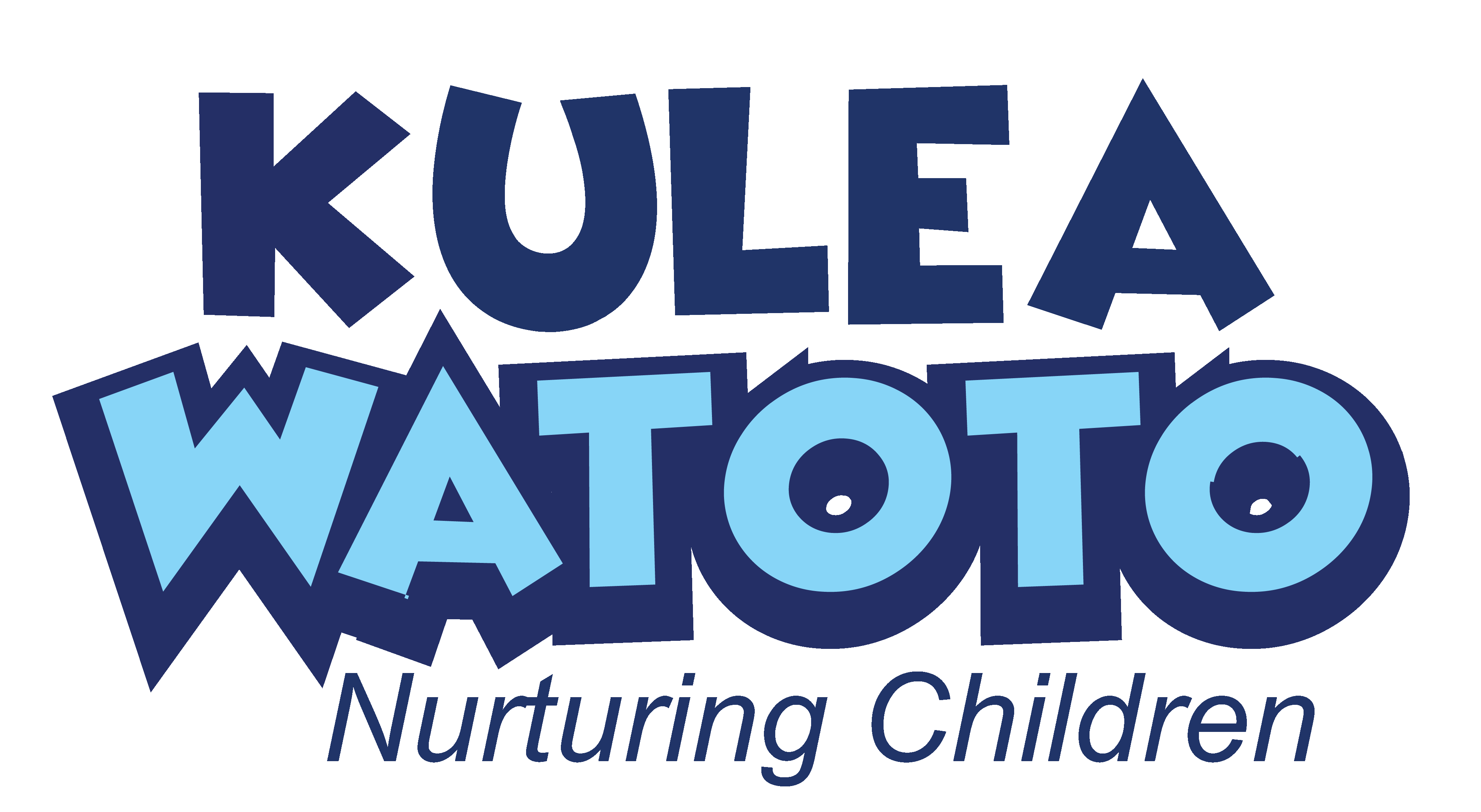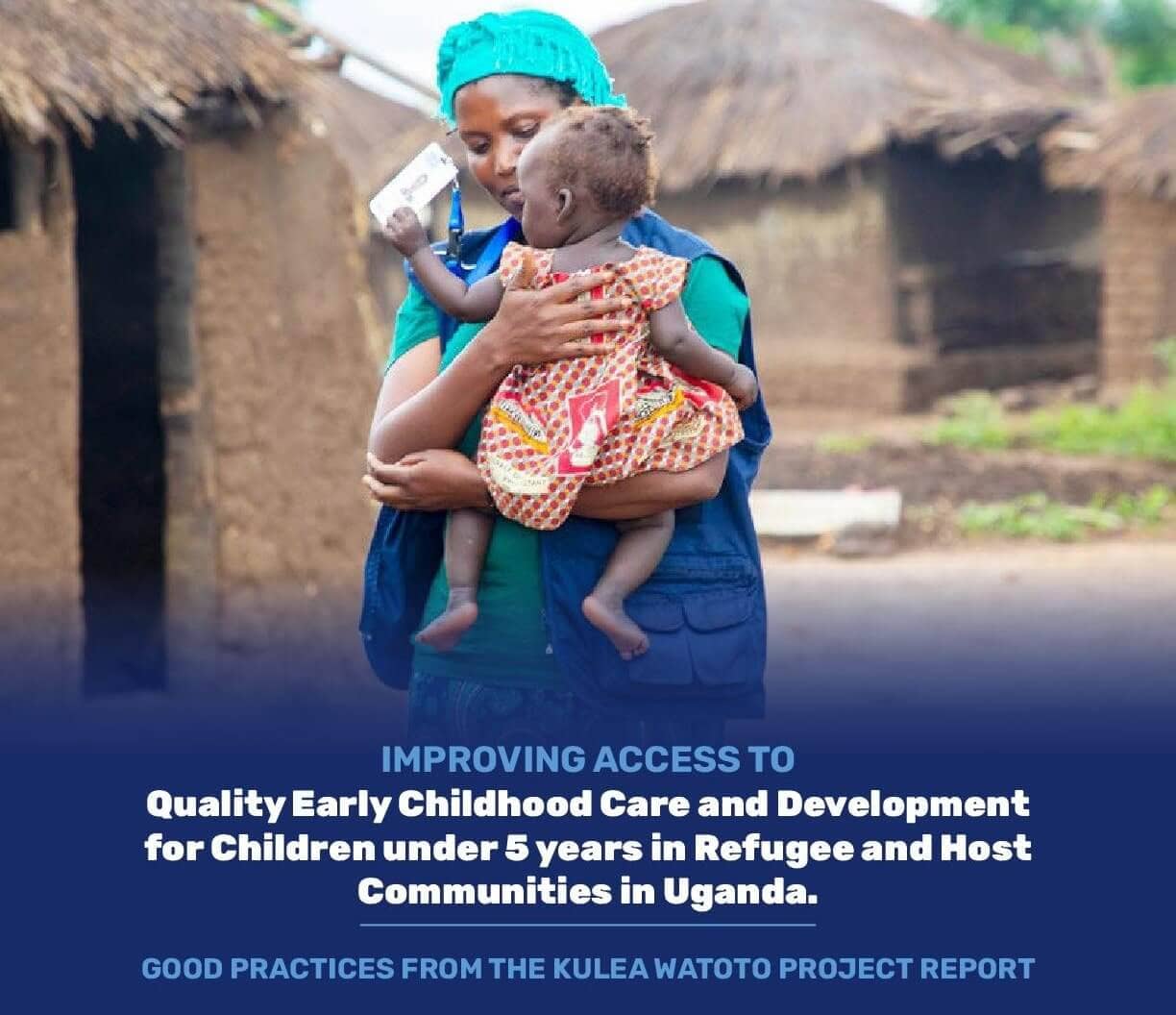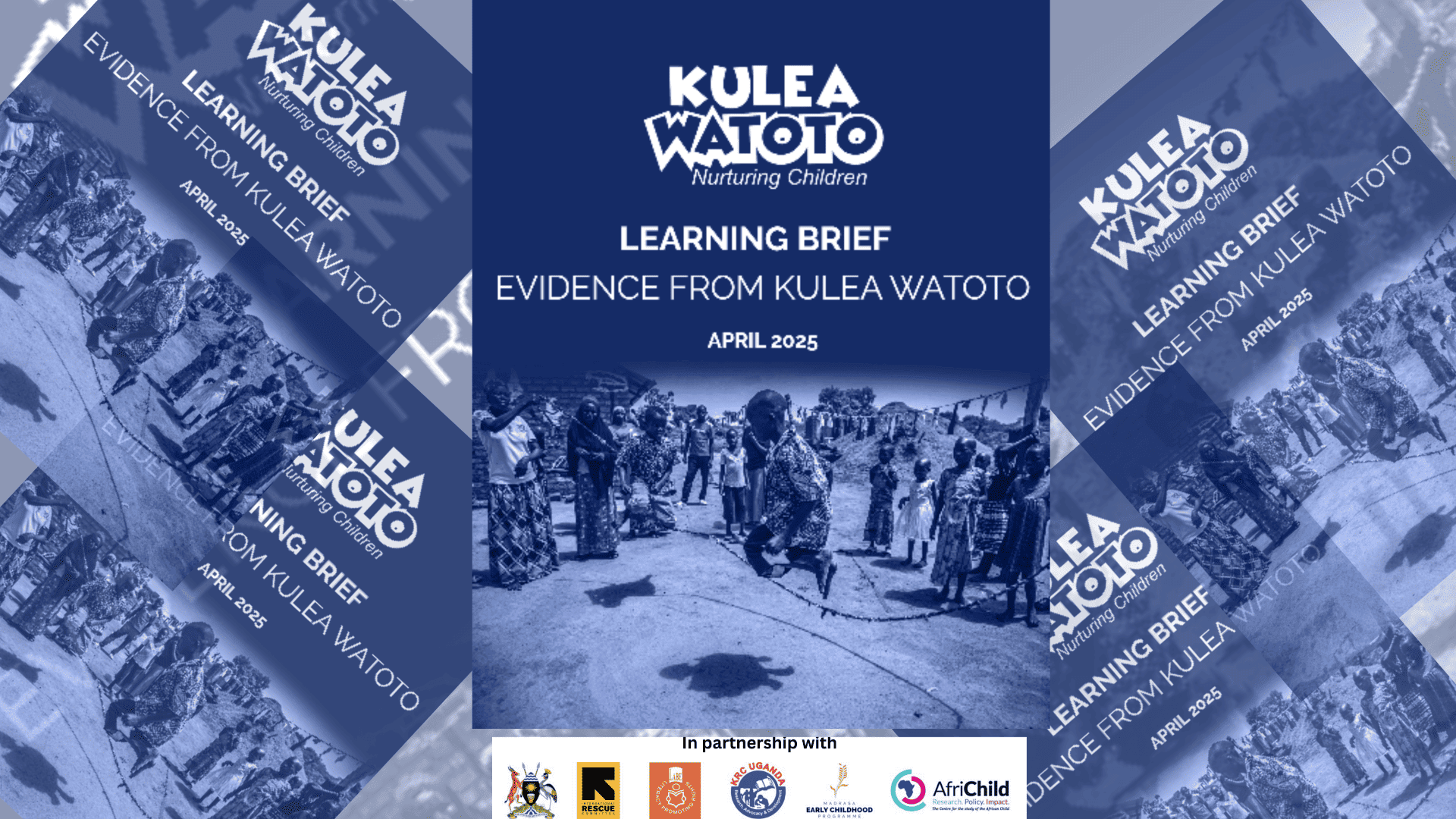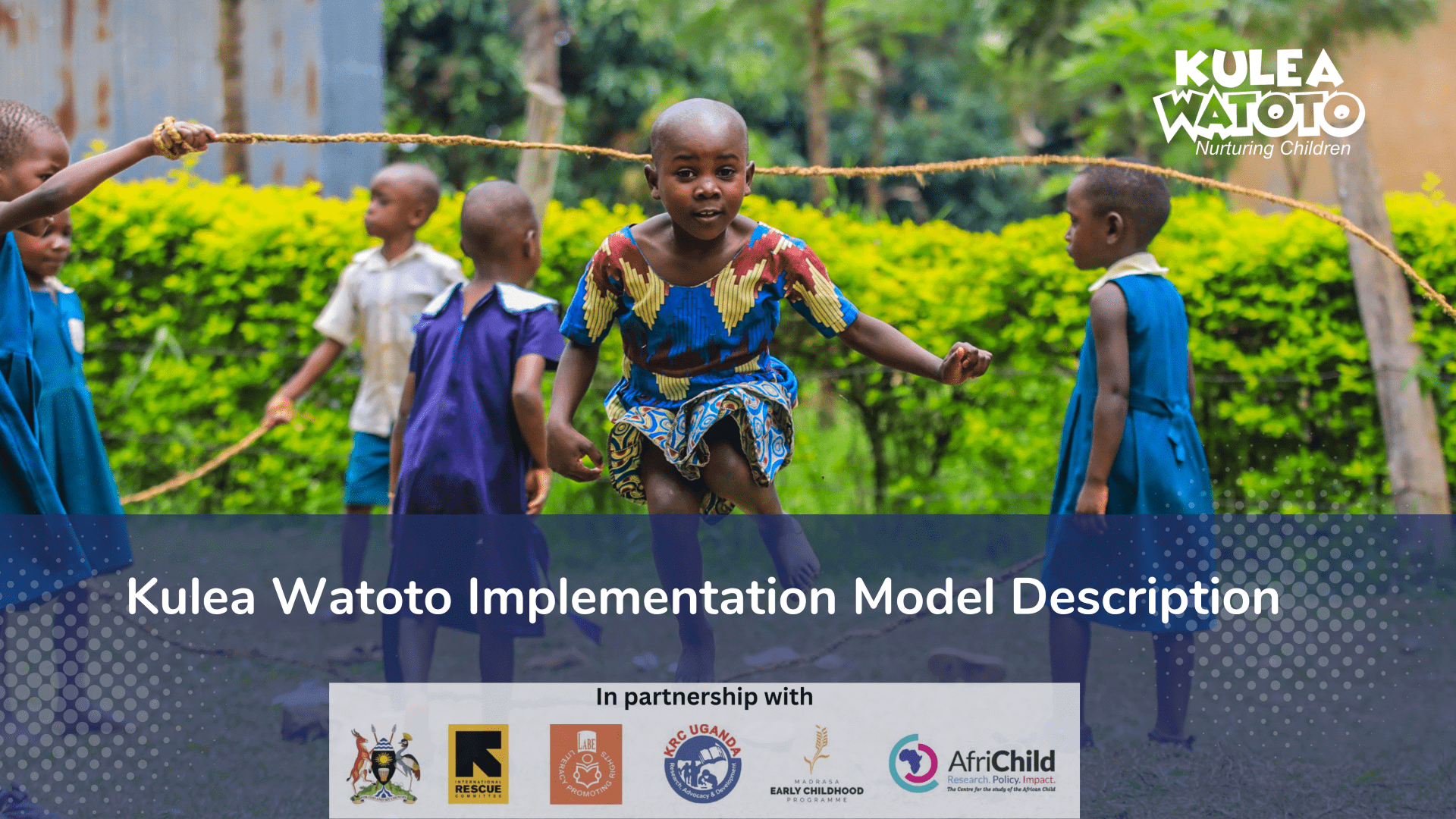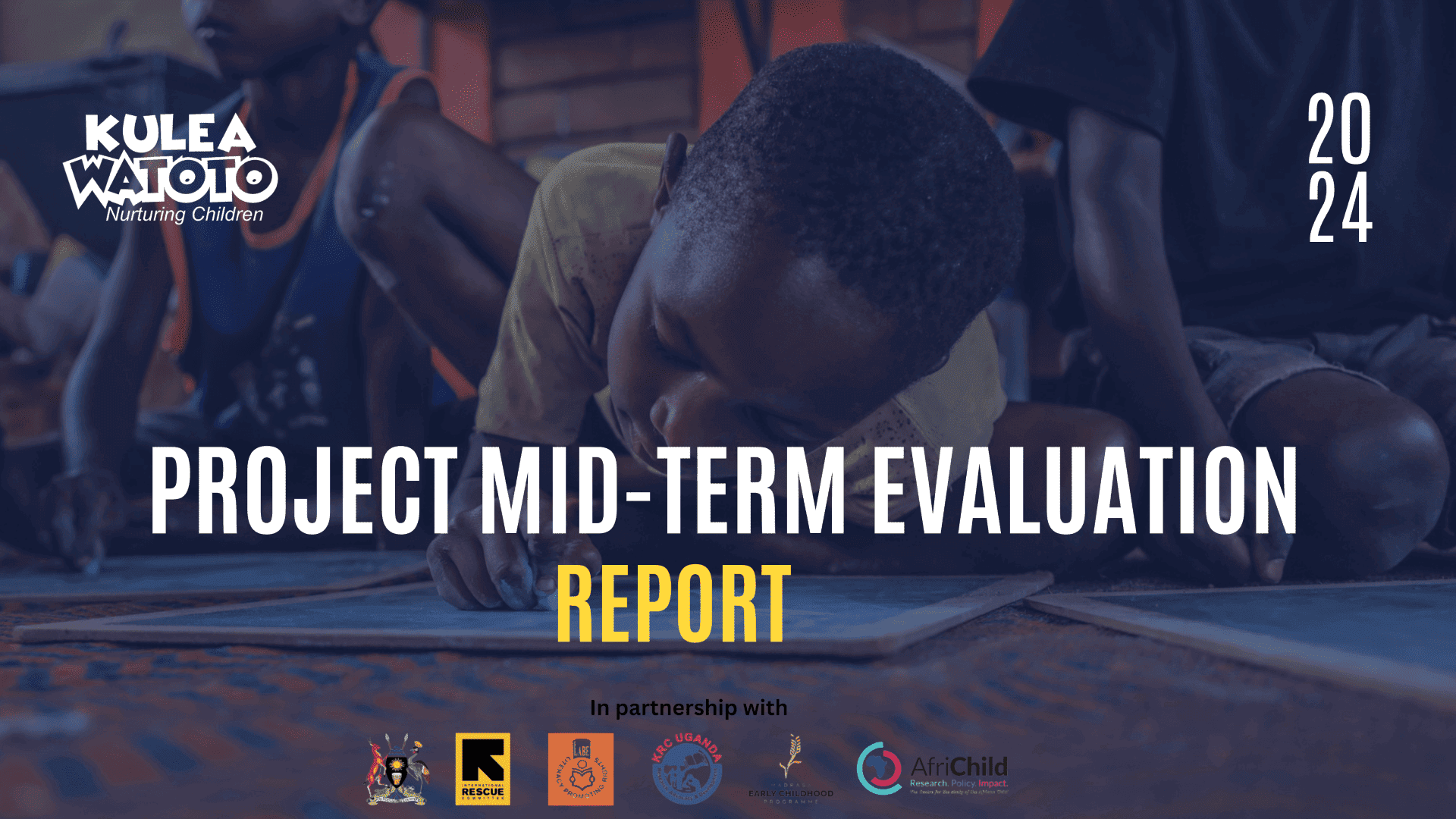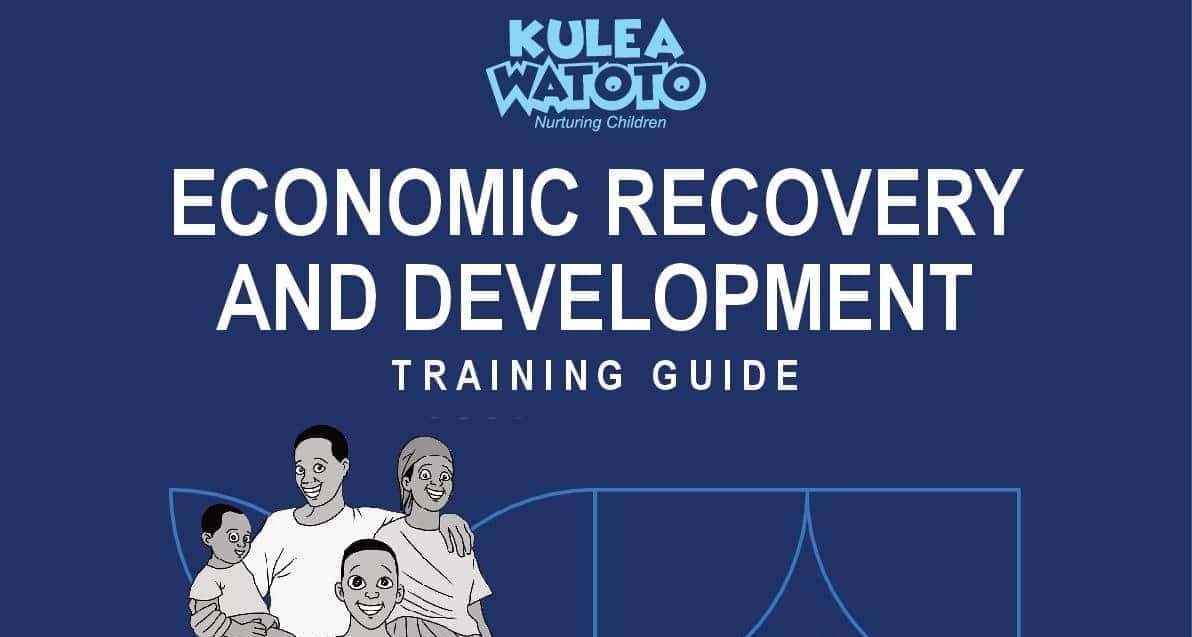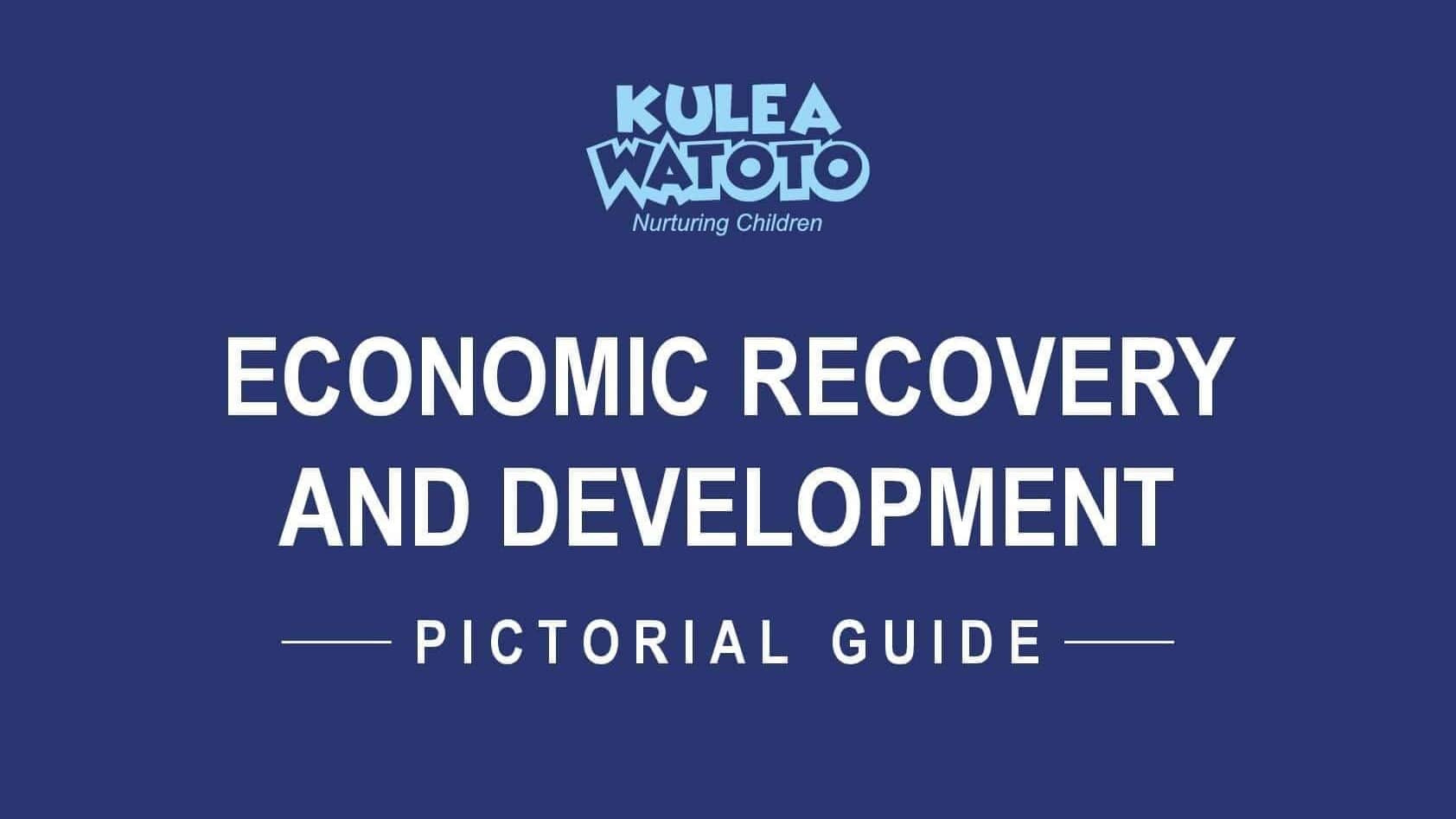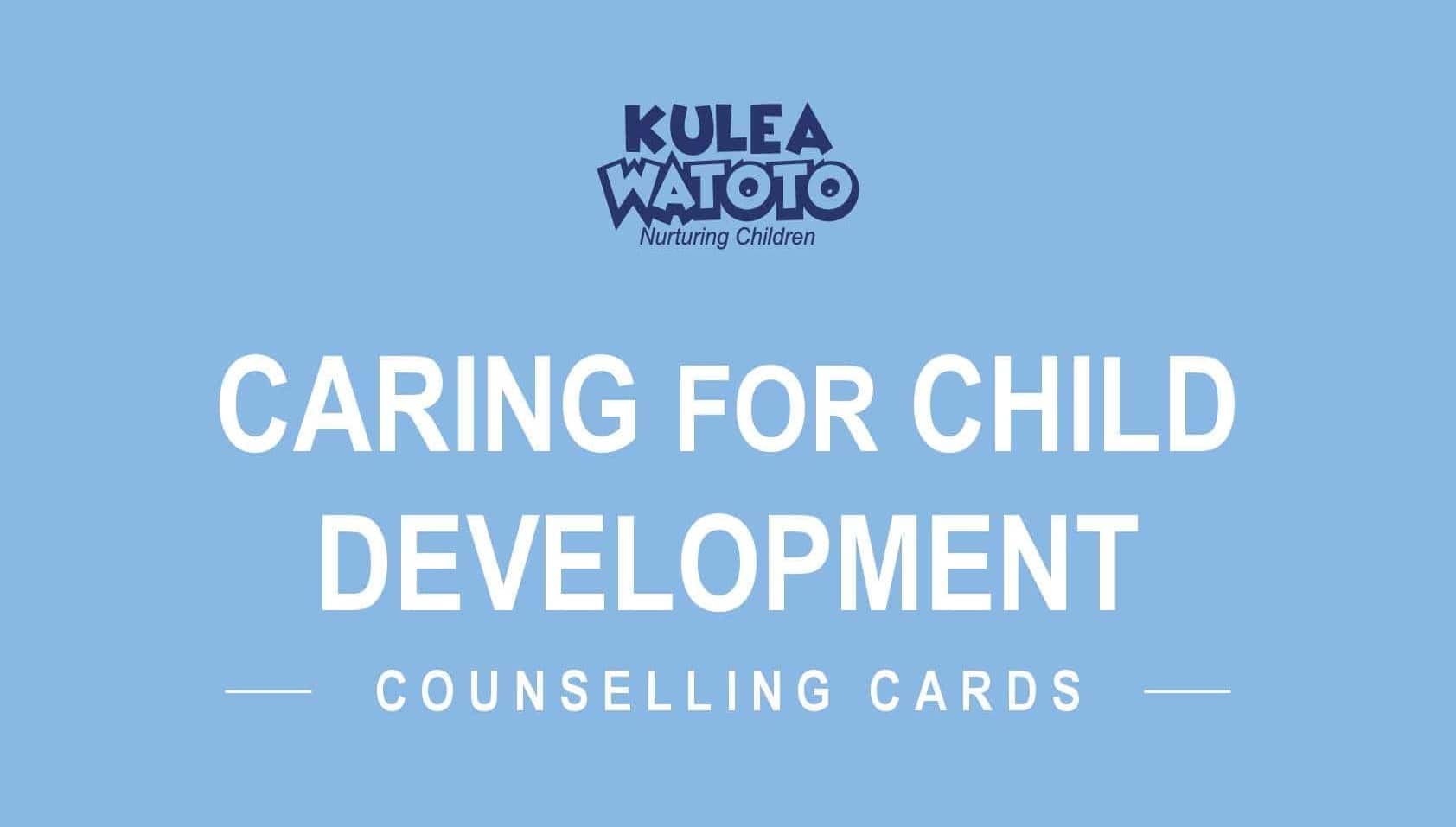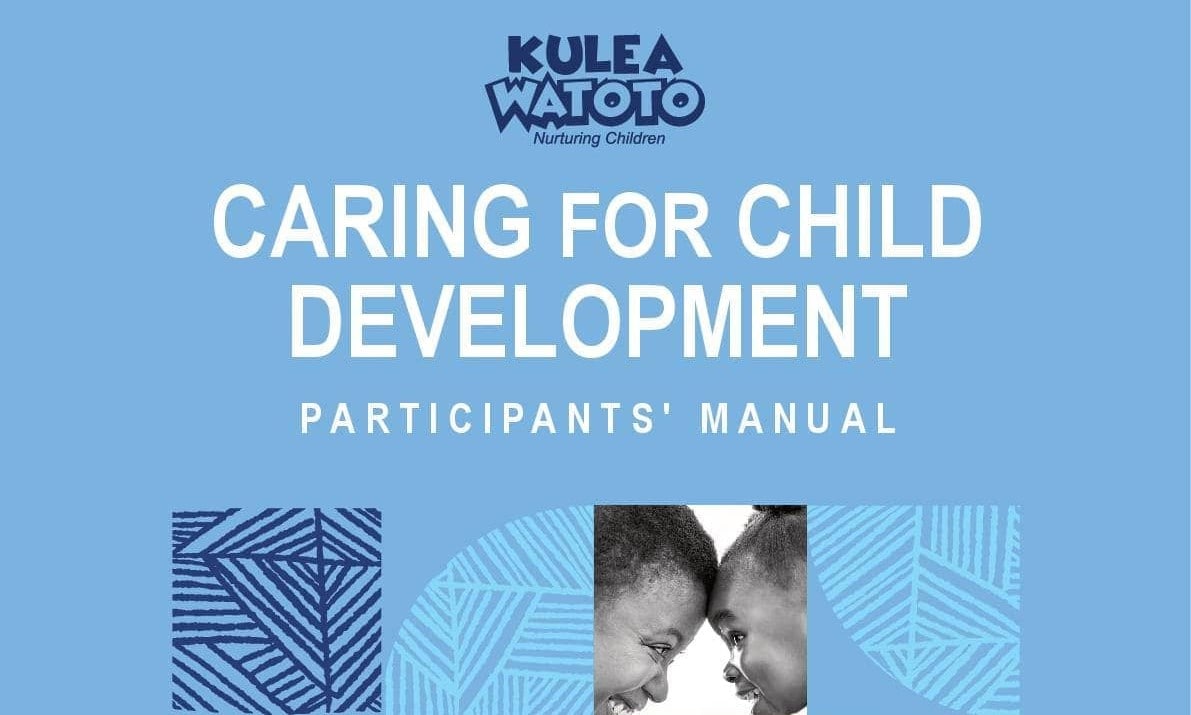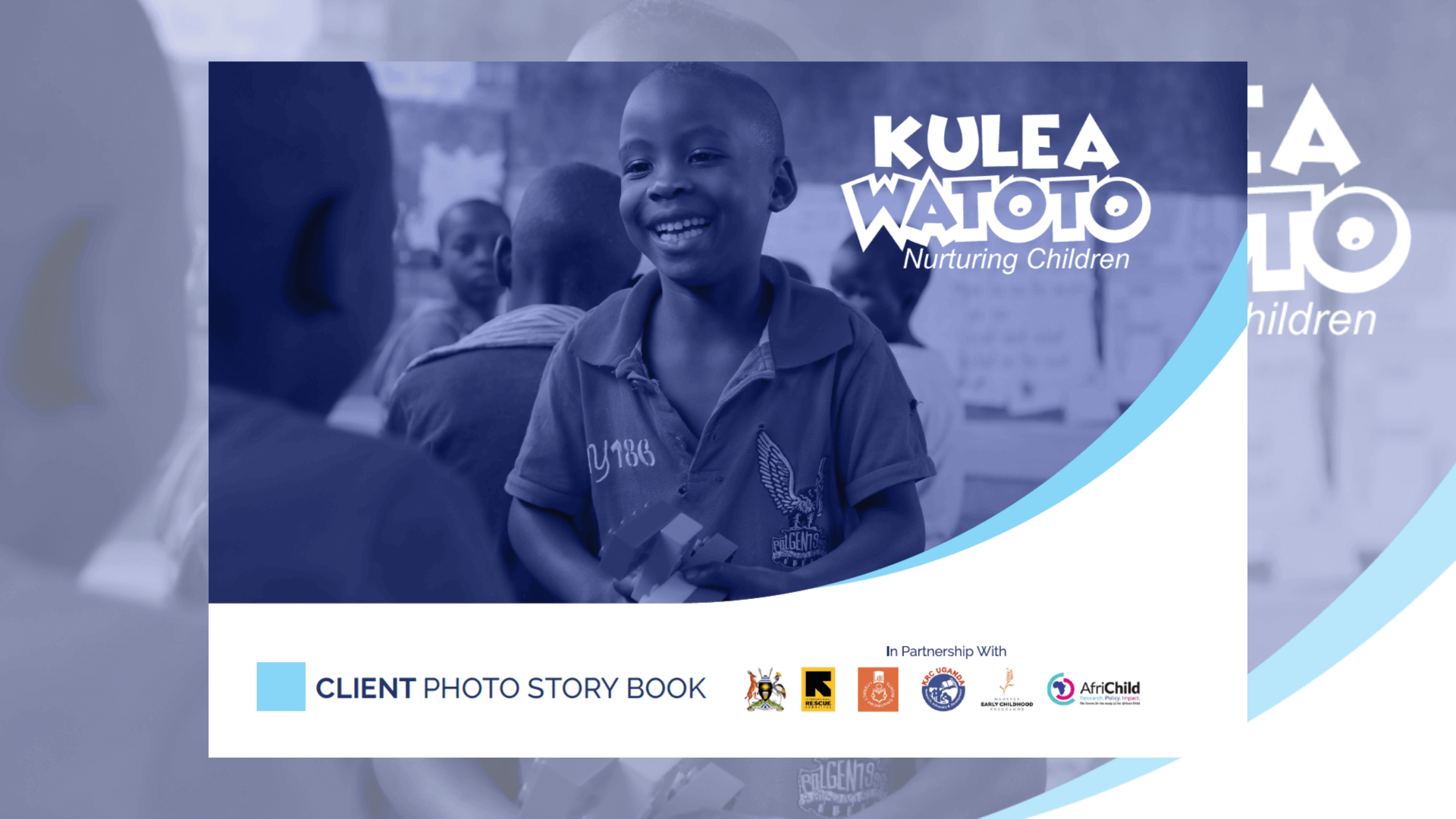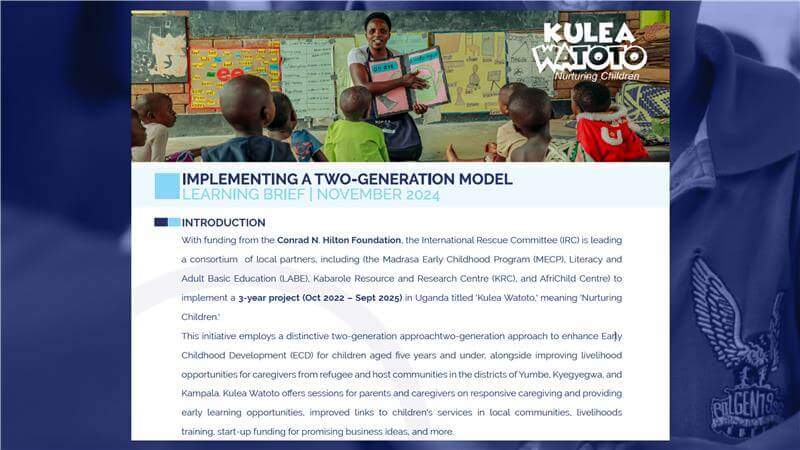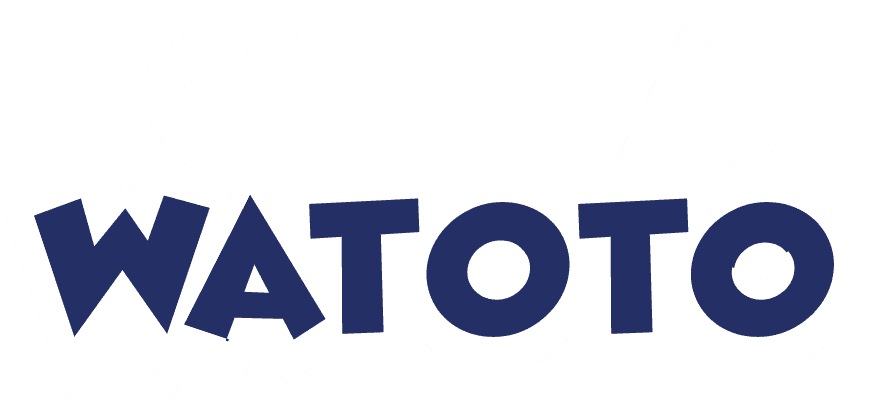 Kulea Watoto Publications
Kulea Watoto Publications
Best Practices from Kulea Watoto: Quality Early Childhood Care and Development for Children under 5 Years in Refugee and Host Communities in Uganda
This study highlights the inspiring success stories of beneficiaries who have experienced transformative changes through this intervention. The willingness of implementing partners to share their experiences has been essential in demonstrating the effectiveness of combining ECD with economic empowerment, emphasizing the importance of holistic support for families.
Evidence from Kulea Watoto Learning Brief
The brief is informed by a study conducted by the Kulea Watoto Research Team to identify and document best practices and lessons learned. The study combined an in-depth analysis of program reports, partners, and fieldwork to generate recommendations for scaling effective two-generation strategies in different contexts (urban versus rural). The research covered links between livelihoods, food security and early learning programs, as well as feedback from program beneficiaries.
Implementation Model Description
Evidence suggests that for a 2 Gen intervention to be successful, it should be defined and implemented consistently. It is also very complicated to evaluate the impact of the project without a defined intervention. Given the fact that the partners implementing KW have different models it’s from this background that the team found it imperative to come up with combined model that could later result into the Kulea Watoto defined intervention package.
Project Mid-Term Evaluation Report
The mid-term evaluation utilized a mixed approach combining qualitative and quantitative data collection techniques to provide a thorough analysis of the project's progress. A total of 1,012 randomly selected respondents were reached from the host and refugee communities across the 3 districts. The survey questionnaire was used to collect quantitative data from caregivers while qualitative data was collected through open ended questions from other stakeholders including project staff, policy makers, local leaders and district technical persons among others.
Economic Recovery And Development - Training Guide
The content of this manual has been adapted from IRC Learn to Earn (L2E), Economic and Social Empowerment (EASE) Discussion Series, Enterprise Uganda’s Agribusiness Training manual, Oxfarm gender action learning series, World Food Programme and UNCDF financial literacy manual. We extend our appreciation to IRC, Kulea Watoto partners and all other development humanitarian Partners for making this content available for use.
Economic Recovery And Development - Pictorial Guide
This visually engaging guide breaks down complex financial concepts into simple, actionable steps with illustrations and infographics to make learning enjoyable and practical. Here's what you'll find inside:
Understanding Financial Literacy
- Clear visuals explaining key financial terms like savings, investments, credit, and debt.
- Practical examples to help you make informed decisions about money.
Mastering Budgeting
Caring For Child Development - Counselling Cards
The caregiver is the most important person to the young child. They feed and watch over the child, give the child affection, communicate with the child, and responds to the child's needs. Often the caregiver is the child's mother. The mother is the primary – most important – caregiver to a young infant who is breastfeeding. The primary caregiver may also be the father or another family member. When both parents are sick or absent, the child's caregiver may be a relative or neighbour.
Caring For Child Development - Participants' Manual
The content of this manual has been adapted from WHO/UNICEF Care for Child Development participants' material, presently undergoing adaptation by the Ministry of Health to the Ugandan context through the Nurturing Care Framework Working Group. We extend our appreciation to WHO and UNICEF for making this content available for use.
Kulea Watoto Client Photo Story Book
At the heart of every community are its children, the dreamers and leaders of tomorrow. The Kulea Watoto project, implemented by the International Rescue Committee (IRC) in Uganda, is a testimony to the power of nurturing young lives through education, care, and opportunity. This photobook captures the inspiring stories of children and families whose lives have been transformed by the project. Each image, each story, reflects a journey of hope, growth, and resilience.
Implementing a Two-Generation model Learning Brief
Kulea Watoto employs a distinctive two-generation approachtwo-generation approach to enhance Early Childhood Development (ECD) for children aged five years and under, alongside improving livelihood opportunities for caregivers from refugee and host communities in the districts of Yumbe, Kyegyegwa, and Kampala. Kulea Watoto offers sessions for parents and caregivers on responsive caregiving and providing early learning opportunities, improved links to children's services in local communities, livelihoods training, start-up funding for promising business ideas, and more.
